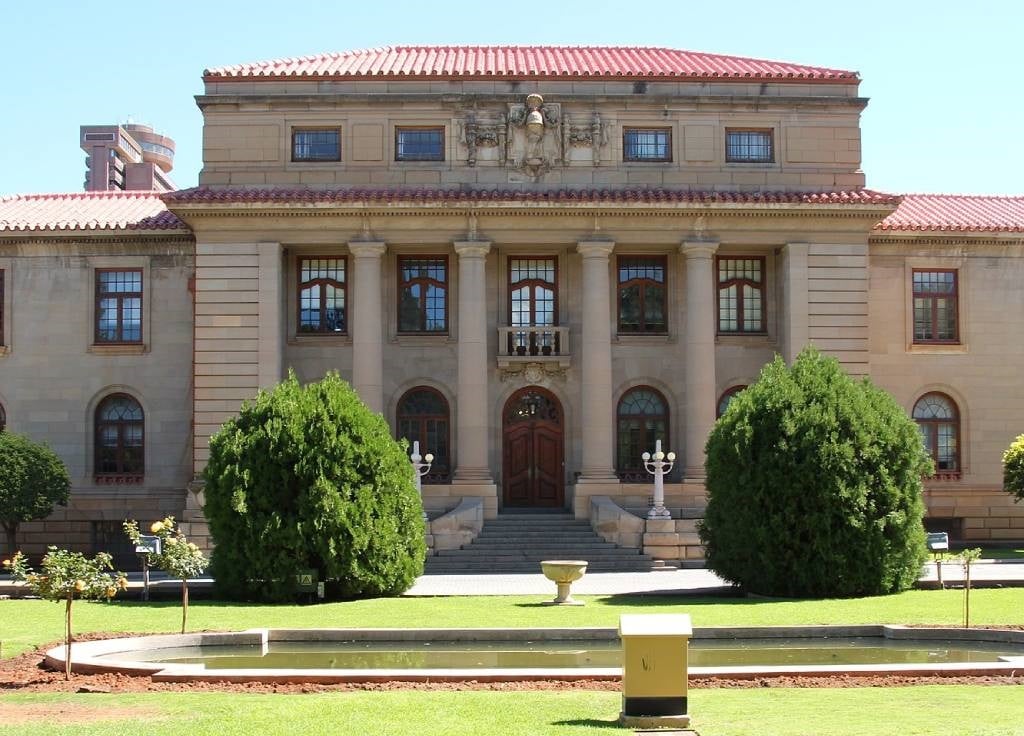


The Supreme Court of Appeal
Ben Bezuidenhout, GroundUp, Wikimedia, file
- The School Governing Body of Grey College in Bloemfontein acted beyond its statutory authority when it stripped the principal of most of his powers.
- The Supreme Court of Appeal said it was clear the relationship between the governing body’s chairperson and the principal had soured.
- It dismissed the governing body’s case with costs.
Grey College Secondary’s School Governing Body acted beyond its statutory authority when it stripped the principal of most of his powers.
This is according to a judgment penned by Supreme Court of Appeal Judge Mahomed Navsa.
Deon Scheepers, who was employed by the school in 2013 was stripped of most of his powers during a meeting in May 2018.
At the time, Henry Büchner, the SGB chairperson announced the decision in a press release, citing the breakdown of trust between the body and the school principal, Bloemfontein Courant reported.
The SGB said the principal was still free to continue conducting teaching and learning activities at the school. But the decision to take away most of his powers was later overturned by the Free State High Court.
The body then appealed the matter in the SCA, which it has lost with costs.
In the SCA ruling, Navsa said it was clear that the relationship between the chairperson of the governing body and Scheepers had soured.
READ | 19 Grey College hostel pupils to be quarantined after pupil tests positive
“It is equally clear from the documents filed on record that there is tension between camps on either side,” Navsa said.
“The principal might be the victim of unjustified criticism by those opposed to him or he might be conducting himself as described by them.
“The accusations by each camp are serious. If there is a basis for a disciplinary case to be pursued against Mr Scheepers by the SGB then that should be the route that is followed, rather than the stratagem adopted here.”
Navsa said the SGB not only acted beyond its statutory authority, but also negated Scheepers’ labour law rights.
During a meeting in May 2018, the governing body confronted the principal with a list of complaints, which included that he treated the staff “harshly and aggressively” pursuant to a meeting that the chairperson and a member of the body had with teachers of the school on 22 November 2016.
The staff also aired certain grievances that Scheepers victimised teachers and bullied them. They also alleged there was lack of visible discipline at the school.
EXCLUSIVE | Prestigious boys’ school reports allegations of sexual misconduct against former teacher
The governing body claimed there was an increase in disciplinary issues which impacted on the academic part of the school and that:
– Scheepers was not equipped to handle complex racial issues;
– He sought to manipulate the outcome of the appointment of the SGB’s annual office bearers in the run-up to the March 2018 elections;
– He broke his trust and contractual obligations with the department by prematurely informing certain candidates that they were unsuccessful in their bid to become deputy principal of Grey College;
– He was unable to instil the Grey College values and traditions to pupils; and that
– He does not enjoy the respect of pupils because [he is] not emotionally connected to them.
According to the judgment, Scheepers was also asked how he viewed the relationship of trust with the SGB.
“He responded by stating that he did not have a strong trust relationship with the chairperson and ascribed this to personal grievances being entertained by the chairperson behind his back.”
Judge Navsa wrote:
Scheepers acknowledged that this breakdown had occurred a long time ago.
Navsa said the SGB’s case was built on a house of cards.
He said the body ignored the statutory architecture and does not distinguish between the different roles played by it and the principal.
“It [governing body] does not appreciate the distinction between its governance/legislative function and the managerial/executive function of the principal.
“It is clear from its answering affidavit that it sees the principal as having no original authority and adopts the position that all his functions and duties derive from it,” he said.
Navsa agreed with the High Court ruling that the governing body lacked the statutory authority to act in the manner complained of, by effectively preventing the principal from fulfilling his statutory functions and duties.

